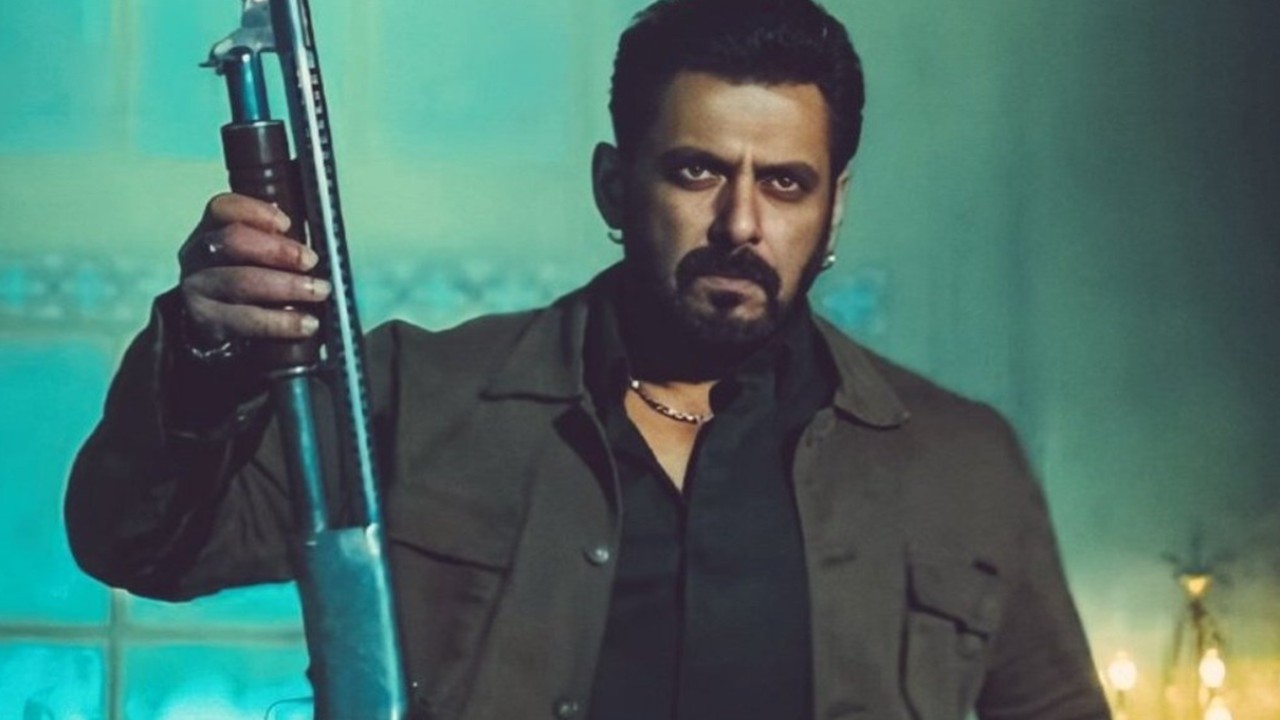The Sikandar You Must Watch Instead
Salman Khan’s Sikandar may not be the spectacle one hoped it would be.
Many decades ago, Sohrab Modi made the historical extravaganza Sikandar that continues to inspire audiences today.

IMAGE: Prithviraj Kapoor in and as Sikandar. Photograph: Kind courtesy National Film Archive of India/Facebook
Thanks to his background in Parsi theatre, when Sohrab Modi started making films, he specialised in costume dramas and grand historical extravaganzas and they continue to inspire filmmakers today.
After historicals like Pukar and Taj Mahal, he started work in what would be his production company Minerva Movietone’s most ambitions production till then: Sikandar.
The 1941 film was about Alexander The Great and his epic confrontation with Indian King Puru (played by Modi).
Who else could he have cast as Alexander but the handsome and regal-looking Prithviraj Kapoor?
Modi asked Kapoor what he would be able to contribute to the role.
According to an anecdote quoted in the book The Prithviwallahs, Shashi Kapoor recalled that his father Prithviraj Kapoor thought over the question, then sent his family back home to Peshawar. For the next three months, he worked on building his physique and fleshing out the character in his mind.
‘It was his idea to turn Alexander into an impish character, and give him the affable gesture of slapping his thigh.’

IMAGE: Prithviraj Kapoor and Vanmala in Sikandar.
By the time the film went on the floors, Prithviraj had transformed himself into a Greek hero, so much so that history text books of the time printed his picture as Alexander The Great.
Shashi Kapoor narrated another interesting incident.
Prithviraj Kapoor was in costume when Modi entered the set, and did not stand up to greet him as was customary.
When Modi asked him the reason, he replied, ‘Sikandar does not know Sohrab Modi.’
The actor-filmmaker saluted Kapoor and said, ‘But I know Sikandar.’
The film begins in the year 327 BC, in Persia, occupied by Alexander. He has fallen in love with a Persian woman, Rukhsana (Vanmala), and it is only when rebuked by his mentor Arastu (Aristotle, played by Shakir), does he set out again to conquer new lands. Rukhsana follows in disguise.
After a long and successful military campaign, Sikandar and his vast army arrive by the banks of the River Jhelum.
King Ambhi (K N Singh) of Takshila throws in his lot with the Greek emperor.
Angered by his cowardice, his sister Prarthana (Meena Shorey) leaves to seek shelter with King Puru (Sohrab Modi), where she falls in love with his son, Tamar (Sadiq Ali).

IMAGE: Sohrab Modi as King Porus in Sikandar.
Rukhsana, now reverting to female clothing and spending some time in an Indian village, lands up in Puru’s palace and ties a rakhi on his wrist. She also extracts a promise from him that he will not kill Alexander.
A lot of embellishment to historical facts here: Alexander comes to Puru’s court disguised as a messenger and is allowed to walk away.
Sikandar defeats Puru by underhand means and keeping his promise, Puru does not kill Sikandar when he has the chance.
Brought before the victorious emperor and asked how he should be treated, Puru, pride intact, says, ‘The way a king is treated by another king.’
Sikandar is impressed with Puru’s courage, spares his life and his kingdom. He also grants him the lands around the Jhelum that he had conquered and offering his friendship, gives him the Greek name of Porus.
In the era before CGI, Modi created spectacular battle sequences, shot brilliantly by Y D Sarpotdar, with thousands of extras, impressive weaponry, chariots, dozens of horses and elephants.
They were shot in Kolhapur, with the help of the royal family, Maharani Tarabai Saheba, who is thanked in the credits.

IMAGE: Prithviraj Kapoor in Sikandar. Photograph: Kind courtesy National Film Archive of India/Facebook
Written by Pandit Sudarshan, the Urdu lines are flowery and use the declamatory style popular at the time.
The costumes and sets (Rusi Banker) have a theatrical look but even in black and white, they look striking.
The music by Rafiq Gazhnavi and Mir Saheb may not have contributed any memorable songs but they work for the film.
Made before Independence, Modi included lines about resisting foreign invasion, leading to the film being banned from being screened in British Indian Army cantonments.
Sohrab Modi went on to direct other lavish costume dramas like Prithvi Vallabh, Jhansi Ki Rani (India’s first technicolour film, starring his wife Mehtaab), Mirza Ghalib and Nausherwan-e-Adil.
Interestingly, in 1965, Kedar Kapoor made Sikandar-e-Azam (in Eastman Colour), in which Prithviraj Kapoor played Porus with Dara Singh played Alexander.
It was not a patch on Modi’s magnum opus.















Post Comment